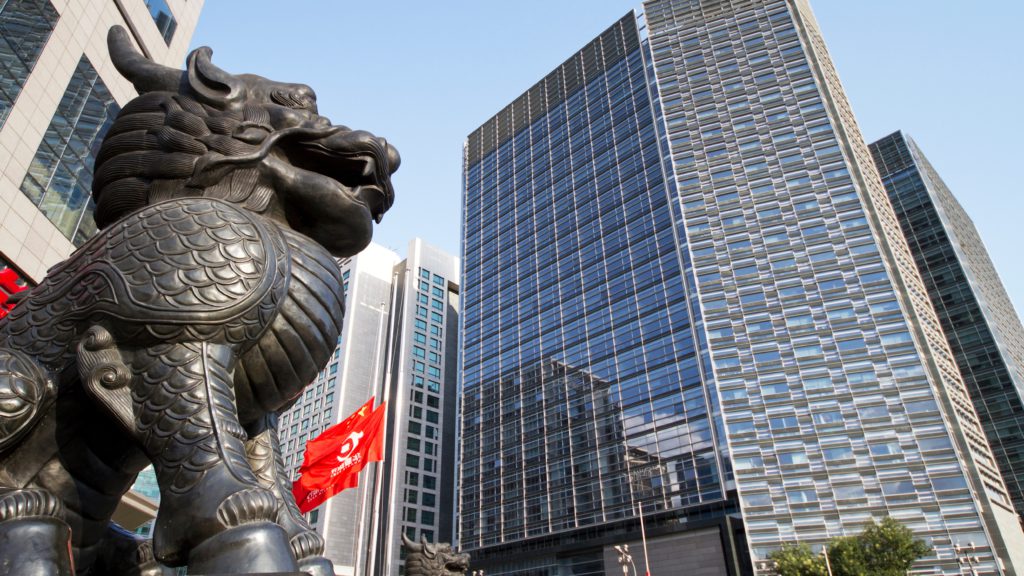China’s state iron ore buyer gets down to business, yet to flex pricing power

China’s new state iron ore buyer is asserting itself in negotiating deals for the world’s biggest steel industry but has yet to help manufacturers struggling with weak demand to get lower prices, mills and miners said.
Around 30 Chinese steel mills have signed 2023 iron ore procurement contracts through China Mineral Resources Group (CMRG), which was set up last year to buy iron ore on behalf of the industry as well as oversee Chinese interests in mines abroad and at home.
“We have not received any cheaper iron ore prices and to be honest I don’t expect they can get better deals any time soon,” a purchasing manager from a state-owned Chinese steel mill said on the sidelines of an industry event in Singapore this week.
“CMRG looks like an updated version of a previous collective buyer agency,” said the person, who like other mills and miners declined to be named given the sensitivity of the matter.
China, the world’s top steelmaker, buys about 70% of all iron ore shipped worldwide, mostly from Australia and Brazil.
A portion is bought at the start of the year under term contracts, with the rest bought later on the market.
CMRG is China’s latest attempt to enhance its iron ore pricing power. Previously, China’s steel industry association strived to win better prices for mills, negotiating fixed prices annually with miners until the industry moved to an index-based price system more than a decade ago.
Chinese steel mills are eager to reduce their iron ore procurement prices as profit margins take a hit from a slower than expected recovery as the country eased strict Covid-19 restrictions after three years.
“We are actively engaging with CMRG when it comes to negotiating contracts for steel mills,” an official at one of the world’s top miners told Reuters. “But after the negotiations are done, we have to sign individual contracts with mills.”
No ‘market-shaking’ change
Mills that have signed contracts through CMRG include 23 members of China’s steel association and several non-member companies, accounting for around 300 million tonnes of annual iron ore purchases, according to officials from two global miners and two Chinese steel mills.
China bought 1.1 billion tonnes of iron ore in 2022, worth $128 billion, according to customs data. It relies on imports for 80% of its consumption.
“Our cooperation with the CMRG is constructive … so far we have not seen a market-shaking change,” another official at a global mining company said.
“It’s hard to say if more Chinese firms will put their contract bargaining under CMRG in the future. That would mainly depend on what CMRG achieves,” the person said.
Several steel mill officials and iron ore traders said the prices that CMRG negotiated for the 2023 contracts are no different from what the mills achieved independently.
However, CMRG’s entry has added to the costs for the steel industry, which is obliged to pay a fixed commission to the agency, steelmakers said.
No contact details could be found for CMRG.
China’s State-owned Assets Supervision and Administration Commission (SASAC), which oversees almost 100 state companies and recently posted a recruitment notice on behalf of CMRG on its WeChat account, did not immediately respond to a fax seeking comment.
Lower iron ore prices are crucial for Chinese steel mills struggling amid high feedstock prices and sluggish demand from the country’s vast but ailing property sector.
Only a third of steel firms in China were operating at a profit last week, according to Mysteel data, capping operating rates at mills.
“We don’t know what CMRG will do for the upcoming 2024 contracts,” the official from the state-backed mill said. “But it’s hard to see much change (from 2023 deals), unless there are some adjustments on negotiation strategies.”
(By Muyu Xu, Naveen Thukral and Amy Lv; Editing by Tony Munroe)
{{ commodity.name }}
{{ post.title }}
{{ post.date }}




Comments